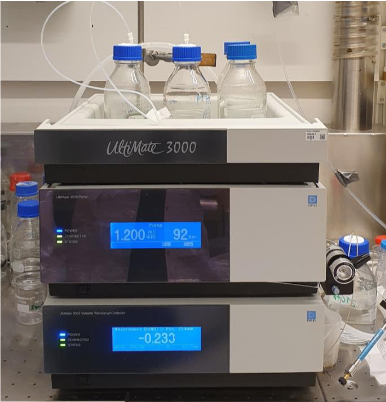KH1324 Analytical Chemistry 2 7.5 credits

The general objective of this course is to give the tools to solve the problems dealing with the development of the qualitative and quantitative analysis of substances presented in the environment and industry products.
When you have passed this course you will have learnt how the analytical process works from sampling to chemical analysis including calibration, handling of measuring data and validation.
Analysis techniques raised in this course include atomic spectroscopy, various chromatographic techniques and MS.
Information per course offering
Information for Autumn 2026 Start 24 Aug 2026 programme students
- Course location
KTH Campus
- Duration
- 24 Aug 2026 - 11 Jan 2027
- Periods
Autumn 2026: P1 (2.5 hp), P2 (5 hp)
- Pace of study
25%
- Application code
10206
- Form of study
Normal Daytime
- Language of instruction
Swedish
- Course memo
- Course memo is not published
- Number of places
Places are not limited
- Target group
- No information inserted
- Planned modular schedule
- [object Object]
- Schedule
- Schedule is not published
Contact
Course syllabus as PDF
Please note: all information from the Course syllabus is available on this page in an accessible format.
Course syllabus KH1324 (Autumn 2024–)Content and learning outcomes
Course contents
Intended learning outcomes
Literature and preparations
Specific prerequisites
Literature
Examination and completion
Grading scale
Examination
- ÖVN1 - Computer Labortory Work, 1.5 credits, grading scale: P, F
- TEN1 - Written examination, 3.0 credits, grading scale: A, B, C, D, E, FX, F
- LAB1 - Laboratory Work, 3.0 credits, grading scale: P, F
Based on recommendation from KTH’s coordinator for disabilities, the examiner will decide how to adapt an examination for students with documented disability.
The examiner may apply another examination format when re-examining individual students.
If the course is discontinued, students may request to be examined during the following two academic years.
Examiner
Ethical approach
- All members of a group are responsible for the group's work.
- In any assessment, every student shall honestly disclose any help received and sources used.
- In an oral assessment, every student shall be able to present and answer questions about the entire assignment and solution.